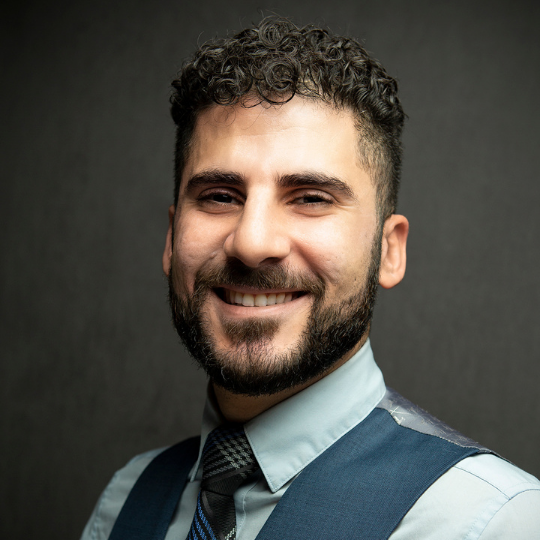
Meet NRMN mentor, Dr. Nael Abdelsamad! Dr. Abdelsamad is the Director of HEAL Pain Management Effectiveness Research Network at the University of Utah. He oversees the management of the 8 HEAL Pain Effectiveness Research Network trials assigned to the Utah Trial Innovation Center (TIC). This network is part of the research plan for the NIH HEAL Initiative (Helping to End Addiction Over the Long-term), which launched in 2018 as an aggressive, trans-agency effort to speed scientific solutions to stem the national opioid public health crisis.
When first receiving his M.D. in 2014, Dr. Abdelsamad had goals to pursue a clinical residency in pediatrics. Shortly after graduating, he started basic science research in the lab to strengthen his application for residency. After a year of being in the lab, he realized basic science research wasn’t his passion. Once he realized he missed the clinical aspect, he jumped right into clinical research at the University of Utah and joined their data coordinating center. His supervisor at the time was a great mentor to him and they have continued their mentoring relationship till this day. Dr. Abdelsamad’s mentor really helped him figure out his calling and saw much of the potential that was in him. His mentor nurtured him and shared knowledge that eventually helped him get promoted in 2019 to the current position he is in. As for long term goals, Dr. Abdelsamad wants to continue his clinical research. He also received his MBA in Healthcare Administration in 2019, which he eventually would like to dive more into that field as well.
Dr. Abdelsamad not only has a mentor, but he is a mentor to the staff at his current center. He has two mentees that he continuously supports and provides guidance to, when needed. Dr. Abdelsamad wants to mirror the same principles that his mentor shows him. Some of these principles include support, encouragement, professional development, and being a resource.
When defining mentorship, Dr. Abdelsamad says mentorship is having someone you can lean on for any and all aspects. He also says a big part of mentorship is not only being supported professionally, but being able to support mentees outside their professions. He would never ask anything personal, but he wants his mentees to be able to discuss any issues so he can provide support and resources. Also, Dr. Abdelsamad shared that it is important for mentees to know that it’s okay to have more than one mentor. Having different mentors can be a way for you to address different aspects of your career.
Dr. Abdelsamad also addressed the lack of mentorship for staff in clinical research. It is often overshadowed and not utilized as it should be. He feels a big part of mentorship focuses on faculty or graduate students, when it can also be beneficial for research staff as well. Even in his center, mentorship was not previously highlighted or structured, but he has been working on creating a culture of mentorship within the clinical research career path.
Lastly, Dr. Abdelsamad wanted to share some words of encouragement for other STEM professionals who might be going through a tough time. He wants to express that when one door closes, another door will open. He encourages everyone to take the time to talk to a mentor, don’t dwell in the struggle and keep pushing forward. Someone sees the potential in you, so live up to it!